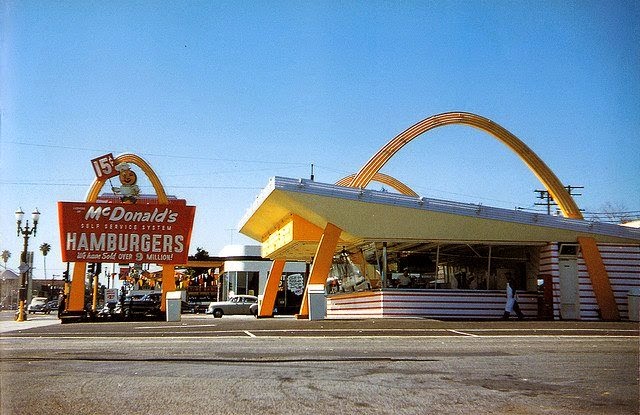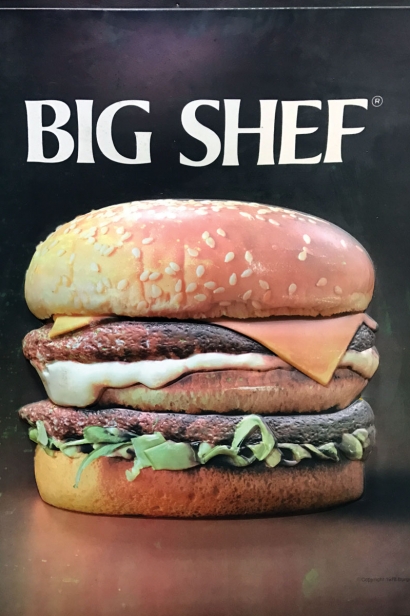Earlier mandate of requiring calories to be listed on everything, including fast food and restaurant menus?
This would definitely help, since I know I've looked at menus which label the calories and I've been a bit shocked by how many calories are in a certain meal and chosen one with lower calories. It's pretty good for soft coercion. A tax on supersize drinks and meals is also great, for the same reason a tax on cigarettes is--the links to obesity and diabetes is too much to ignore, and a tax means lesser consumption of them and thus a public health benefit.
Also, a ban on advertising fast food to children, which is almost on the level of advertising tobacco or beer to kids given the links to childhood obesity and diabetes. So no toys in Happy Meals except for Happy Meals which are under a certain amount of calories/fat/sodium/sugar, and no commercials on children's TV for fast food except when healthy meals are being advertised. And for that matter, some regulation on liquor advertising, since liquor is full of calories and ethanol is an addictive carcinogen, so there should probably be restrictions on its advertising, especially during sporting events where children are watching. This is treating products harmful to public health in a similar way to how developed nations have fought the tobacco industry.
One of my coworkers sent me to McDonald's for her once. I actually called and asked "Are you sure?" When I saw the prices. Those are crazy.
Beans, chickpeas, rice, fruit...all cheaper than that crap. For that matter, so is throwing a pot roast into a crockpot to feed multiple people.
Sit down restaurants have larger portions but most people can't afford to eat there on a daily basis.
The draw of processed food is convenience.
I can get similar prices (including 15-20% tip) to fast food at certain restaurants in my area, and I suspect the same is true elsewhere. A gyro plate of rice and meat and salad at a Greek restaurant or a banh mi sandwich at a Vietnamese restaurant isn't much more expensive than a McDonalds meal, not more calorie heavy either, and tastes way better. So some way to promote small business would definitely help--the Republicans have always targetted small business and their owners, but a lot of their policies end up helping big business more.
Although it's still cheaper to purchase rice in bulk and use that as a base to make meals, especially since a package of meat at the store is more than one portion size. Hunting and fishing is also great, since it serves as a good leisure activity and fish and wild game are low in fat and calories and high in protein--the meat from one deer can fill a freezer. In some states you can legally process roadkill, which unfortunately has been the subject of mockery (like the Tennessee roadkill law) even though IMO it's criminal to waste a freshly roadkilled animal (it could feed yourself, your family and friends, or the homeless, since I bet government vehicles are involved in many roadkill accidents a year). Although the cost of fishing/hunting equipment, licenses, and transport to fishing/hunting areas is rather costly.


